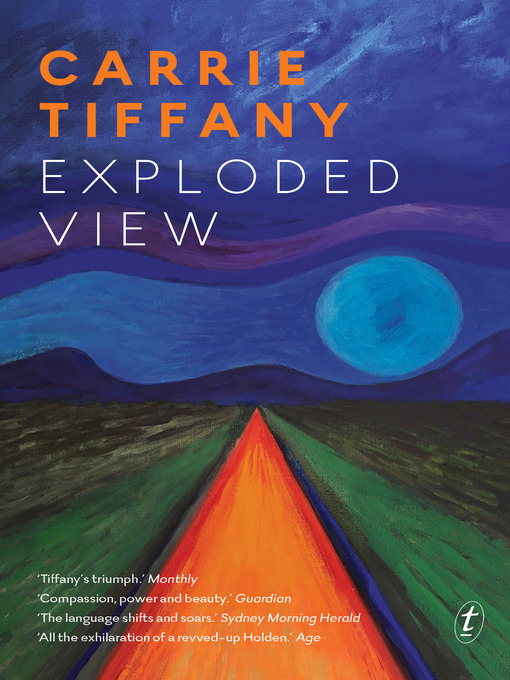Must a girl always be a part?
How can she become a whole?
In the late 1970s, in the forgotten outer suburbs, a girl has her hands in the engine of a Holden. A sinister new man has joined the family. He works as a mechanic and operates an unlicensed repair shop at the back of their block.
The family is under threat. The girl reads the Holden workshop manual for guidance. She resists the man with silence, then with sabotage. She fights him at the place where she believes his heart lives – in the engine of the car.
Spare, poetic and intensely visual, Exploded View is the powerful new novel from the author of Everyman's Rules for Scientific Living and Mateship with Birds – one of Australia's most celebrated writers and winner of the inaugural Stella Prize.
Carrie Tiffany was born in West Yorkshire and grew up in Western Australia. She spent her early twenties working as a park ranger in Central Australia. Her first novel, Everyman's Rules for Scientific Living (2005), was shortlisted for the Orange Prize, the Miles Franklin Literary Award, the Guardian First Book Award and the Commonwealth Writers' Prize, and won the Dobbie Award and the WA Premier's Award for Fiction. Mateship with Birds (2011) was also shortlisted for many awards and won the inaugural Stella Prize and the Christina Stead Prize for Fiction in the NSW Premier's Literary Awards. Carrie's latest novel Exploded View (2019) won the University of Queensland Fiction Book Award in the 2019 Queensland Literary Awards. She lives and works in Melbourne.
'Superbly controlled, like dark, secret music rising from an abyss.' Helen Garner'This is Tiffany's triumph...her prose has the alert, truncated poetry of a preternatural wise child—lyrical without being florid, clear-sighted by unhappy with that early knowledge...It's title might suggest splintering of focus, but the line drawn in Exploded View is unwavering, tragic, and heads straight down.' Monthly
'Exploded View is an offbeat coming-of-age story...there is hardly a detail that does not reverberate beyond itself, evoke some deeper implication.' Australian Book Review


